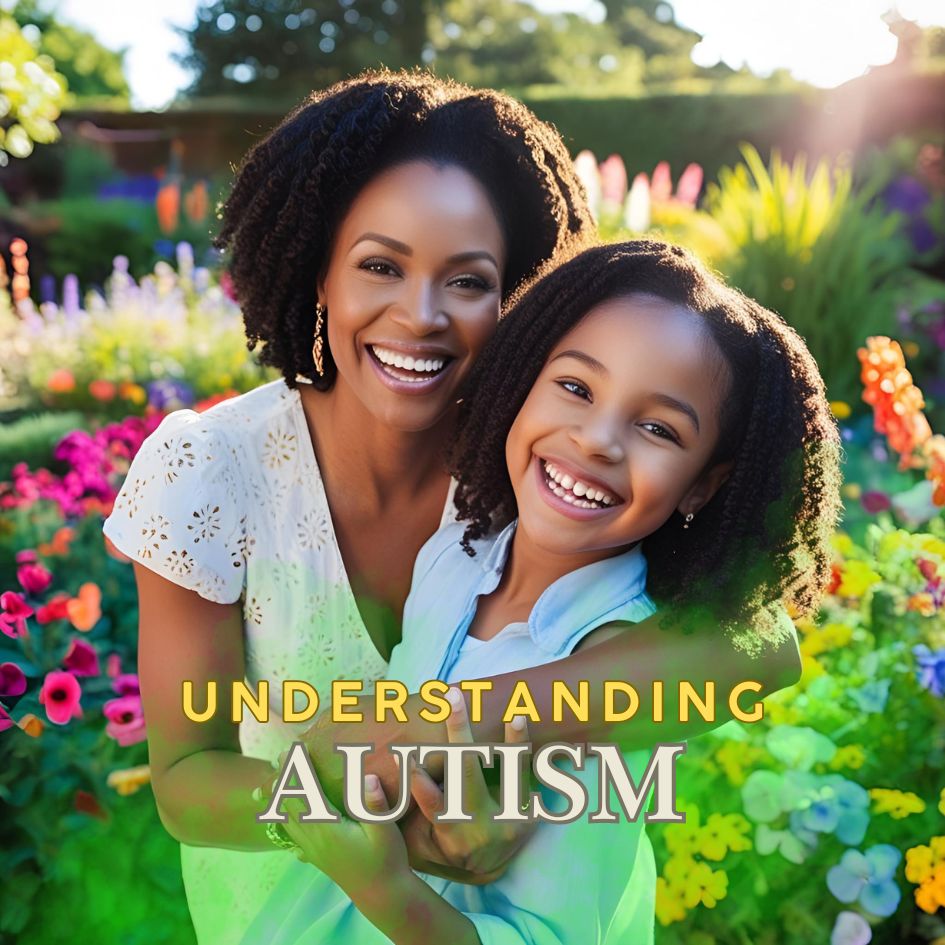Resources, Education, and Advocacy for African American Families
by Tara. E l April 1, 2025
Autism Awareness Month is a critical time to shine a light on the challenges and triumphs of families navigating autism, particularly within the African American community. Autism Spectrum Disorder (ASD) affects children of all backgrounds, but Black children are often diagnosed later, receive fewer resources, and face additional barriers to proper support. This article provides an in-depth look at how African American families can access resources, navigate educational options, and advocate for their children.
Listen to the Podcast
Why Early Diagnosis Matters
One of the biggest challenges Black families face is delayed autism diagnosis. Research shows that African American children are diagnosed later than white children, often due to healthcare disparities, cultural stigma, and misdiagnoses. Some parents are told their child is simply “bad,” leading to missed opportunities for early intervention.
Recognizing the signs of autism early—such as delayed speech, repetitive behaviors, and social difficulties—can make a significant difference in a child’s development. If you suspect your child may have autism, seeking an evaluation as soon as possible is crucial.
Accessing Autism Resources
Once a child is diagnosed with autism, finding the right resources can feel overwhelming. Fortunately, many organizations and programs are designed to help African American families.
National & Local Resources:
- The Color of Autism Foundation: Focuses on helping Black families navigate autism resources.
- Autism Society: Provides advocacy, support groups, and educational materials.
- Autism Speaks: Offers toolkits for parents and information about therapy options.
- Local Autism Support Groups: Many cities have community-based programs tailored to families of color.
Support Groups & Parent Networks
Connecting with other parents who understand your journey can be invaluable. Facebook Groups, online forums, and local meetups provide emotional support, shared experiences, and guidance on navigating the autism system.
Public vs. Private Schools: Which is Best?
When it comes to education, choosing the right school environment for an autistic child is critical. Each option has its advantages and limitations.
Public Schools:
- Provide Individualized Education Programs (IEPs) or 504 Plans to accommodate learning differences.
- Have special education teachers and access to therapies.
- Legally required to provide services under the Individuals with Disabilities Education Act (IDEA).
- Limitations: Large class sizes and lack of specialized autism programs in some districts.
Private Schools:
- Some offer specialized autism programs with smaller class sizes and tailored curricula.
- Parents have more flexibility in choosing the right environment.
- Limitations: It can be expensive, and not all private schools provide autism support.
Therapies, Interventions, & Medication
Autism treatment is not one-size-fits-all. Parents must explore various therapy options and decide what works best for their child.
Common Therapies:
- Applied Behavior Analysis (ABA): Helps with social skills and behavior but has some controversy regarding its methods.
- Speech Therapy: Improves communication skills.
- Occupational Therapy (OT): Enhances motor skills and daily living tasks.
- Physical Therapy (PT): Helps with coordination and movement.
Medication Considerations
While there is no medication to “cure” autism, some children benefit from prescriptions that help manage symptoms like anxiety, hyperactivity, or aggression. However, it’s essential to work with a doctor who understands autism and cultural considerations when making these decisions.
Advocating for Your Child
One of the most important roles a parent can play is an advocate. Whether in the doctor’s office, school system or within your own family, standing up for your child ensures they receive the support they need.
Steps to Advocacy:
- Know Your Rights: Schools must provide accommodations for autistic students under federal law.
- Build a Support Network: Connect with other parents, educators, and professionals.
- Push for Early Intervention: The sooner your child receives therapy and support, the better.
- Challenge Stigma: Autism is not a limitation—it’s a different way of experiencing the world.
Final Thoughts
Raising an autistic child comes with challenges, but it also comes with unique joys. African American families often face additional obstacles, from late diagnoses to lack of resources, but with the proper knowledge and advocacy, they can ensure their children thrive.
Autism Awareness Month is the perfect time to spread knowledge and support each other in this journey. By staying informed, building strong communities, and advocating for change, we can create a more inclusive world for all children on the spectrum.
More from Mahogany Speaks to You

